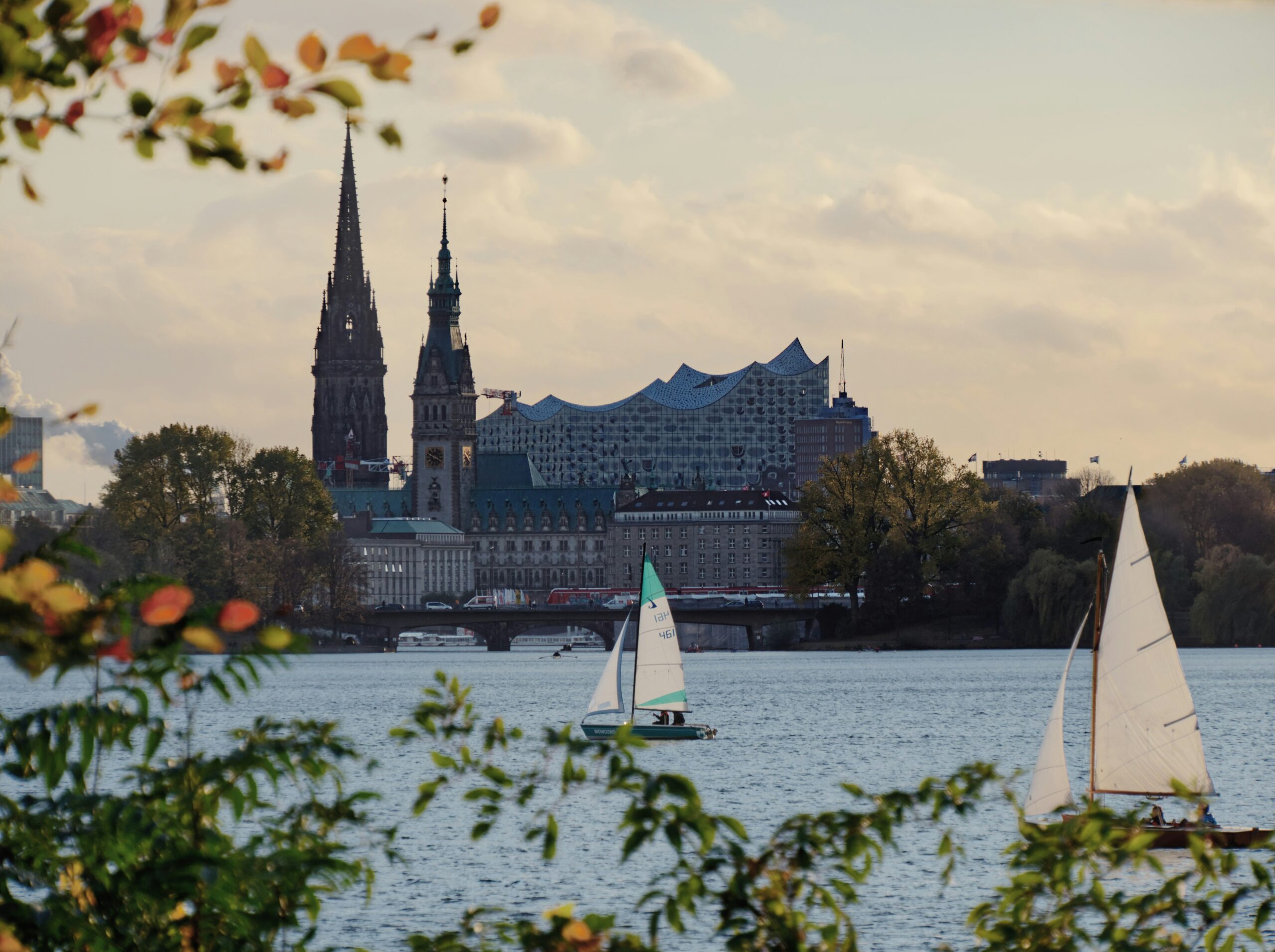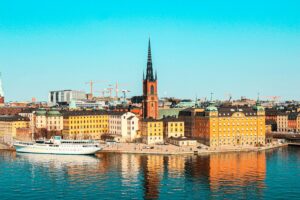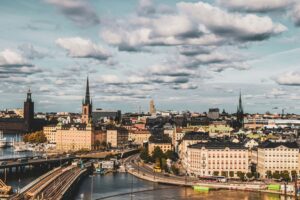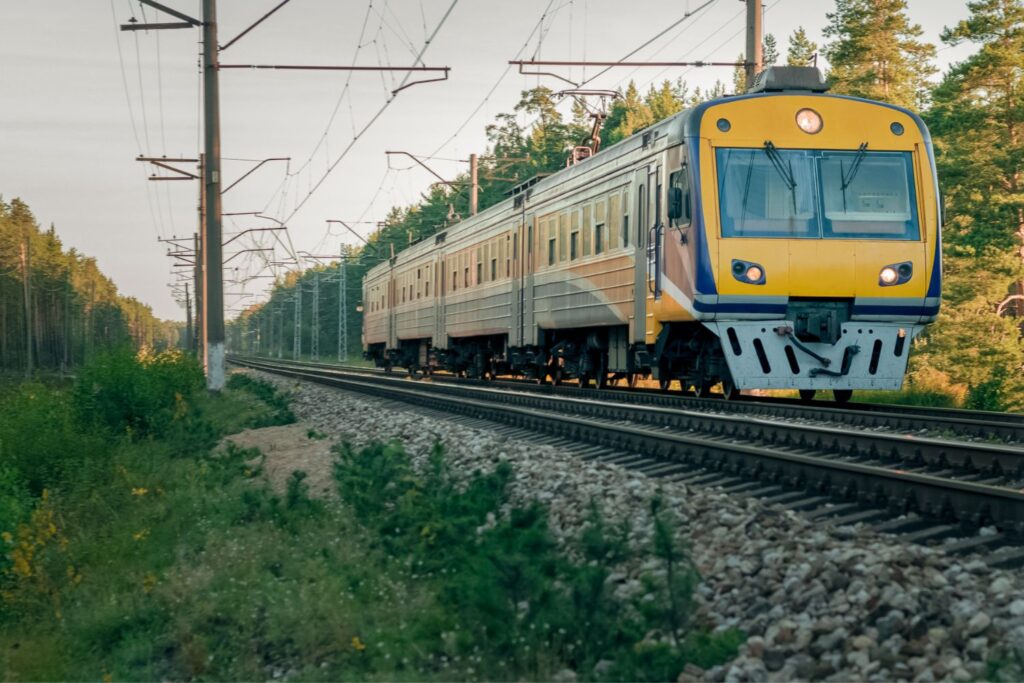Slow Travel from the UK to Riga, Latvia
Our slow travel partner Byway specialises in journeys by train, bus, boat, and bike. To get you from the UK to the start of your Sustainable Journey with us, and or back home again we will connect you with Byway, who will arrange the appropriate travel and accommodation to ensure a hassle-free experience getting you to and from your Journey with us with all the support you need. By clicking on the link below you will be taken to a Byway ‘blueprint’ for you to provide the dates and details to get a plan and price for your travel to and from your Journey with us. It is important to remember that Byway is not part of Sustainable Journeys so any booking you make with Byway is subject to a separate agreement between you and Byway, which is your own responsibility and by clicking the link provided you accept this fact. Please see more about Byway here and follow the link below to explore how to slow travel to connect with this Sustainable Journey. Air travel, if that is your preference, is bookable with Sustainable Journeys or you can make your own arrangements.
Click to view Byway’s rail journey: UK to Riga, Latvia
By clicking this link you are leaving Sustainable Journeys
Overview
Embark on an unforgettable rail journey, the low-carbon way, from London through the heart of Europe as we kickstart our Sustainable Journeys adventure en route to Riga, stopping in Hamburg, and Stockholm, before arriving in Riga, Latvia.
Day 1 – Depart London St Pancras to Hamburg, Germany (approx. 7 hours and 56 minutes)
Board the Eurostar at St Pancras International Station, at your booked time, heading under The Channel to Brussels – approx. 2 hours and 1 minute; then from Brussels to Cologne, Germany – approx. 1 hour and 50 minutes; then from Cologne to Hamburg, Germany – approx. 4 hours and 5 minutes.
Upon arriving in Hamburg, make your way to your hotel, which is a short 6-minute walk away.
Check-in at HENRI Hotel Hamburg Downtown or similar.
Breakfast included.
With three rivers that feed a maze of waterways and canals, Hamburg has been dubbed the “Venice of the north” (with six times as many bridges). The city has its roots in Maritime history, but also in music-making. It was the birthplace of Mendelssohn, the formative city of the Beatles, and recently, the state-of-the-art Elbphilharmonie concert hall has put Hamburg firmly on the map as one of the top cities for live music, as has its hip-hop and jazz club scene.
The HENRI Hotel Hamburg Downtown is centrally located between Mönckebergstraße, the main train station (Hauptbahnhof) and the town hall market (Rathausmarkt).
If time allows, enjoy a concert at the iconic, wavelike Elbphilharmonie. The programme is diverse, covering a wide range of music genres, and the venue is worth a visit for the contemporary architecture and city views alone.
There’s so much to do, so leave what time you can to explore Hamburg.


Day 2 – Hamburg, Germany to Stockholm, Sweden (approx. 10 hours and 4 minutes)
Rail from Hamburg to Copenhagen, Denmark – approx. 4 hours and 49 minutes; then from Copenhagen to Stockholm, Sweden – approx. 5 hours and 15 minutes.
Upon arriving in Stockholm, make your way to your hotel, which is a short 5-minute walk away.
Check-in at Nordic Light Hotel or similar.
Breakfast included.
Practicality meets style in Sweden’s capital, from its architecture to its culture and its famously well-dressed locals. Spread across 14 islands on Lake Mälaren, the city of Stockholm is also the gateway to a pristine archipelago of 30,000 forested islands and islets.
A five-minute walk from Stockholm’s Central Station, this contemporary hotel has sleek, modern rooms, an onsite restaurant and has easy access to the main sights.
If time allows, explore Stockholm’s art scene at the red-brick Fotografiska. Despite being a relative newcomer (it opened its doors in 2010), Fotografiska has been quick to establish itself as one of the leading museums of photography in the world. Head to Stockholm’s historic centre, Gamla Stan, and discover medieval churches and the Baroque Palace.
There’s so much to do, so leave what time you can to explore Stockholm.


Day 3 – Stockholm, Sweden to Tallinn, Estonia (approx. 20 hours and 15 minutes)
Board the train from Stockholm, Sweden to Tallinn, Estonia – approx. 20 hours and 15 minutes.
Day 4 – Tallinn, Estonia to Riga, Latvia (approx. 4 hours and 25 minutes)
Board the train from Tallinn, Estonia to Riga, Latvia – approx. 4 hours and 25 minutes.
Click to view Byway’s rail journey: UK to Riga, Latvia
By clicking this link you are leaving Sustainable Journeys
The information below relates to the Latvia by Rail Sustainable Journey. Please click here for more details.
What’s Included?
7 nights in small local hotels and guesthouses
Train tickets to all locations mentioned
Riga cycling tour
Hiking route notes and maps in the mobile app
Brewery tour and beer tasting at Valmiermuiza brewery
What is not included?
Travel to and from Latvia, by air or rail
Pre or post tour accommodation
Drinks not mentioned as ‘included’.
Personal travel insurance
Gratuities
Entrance fees
Optional activities and tours
Bicycle, boats, and additional activities that come with a cost are not included.
Why this tour is sustainable?
All our tours promote and respect local culture by inviting travellers to witness and experience local customs and traditions.
Accommodations.
Where possible we use small locally owned hotels and homesteads run by locals so you would make an impact on the local economy and would meet locals and feel their hospitality.
Transport.
In this tour, we include rail travel. So, you are making a lot less CO2 emissions than when driving.
Short distances.
We offer day activities that include walking, hiking and exploring nearby areas from the overnight stay.
Sightseeing.
We include many outdoor options with beautiful walking trails and natural monuments to see.
Food and drinks.
We guarantee that all the tasted food is typical for the regions and comes from local nearby farms. The food supply chain is shortened and localised to the regions visited. Most places have vegetarian/vegan options.
Local staff.
All the tour providers (guides, hosts) are locals living there and we contract them directly and pay fair wages for their services.








